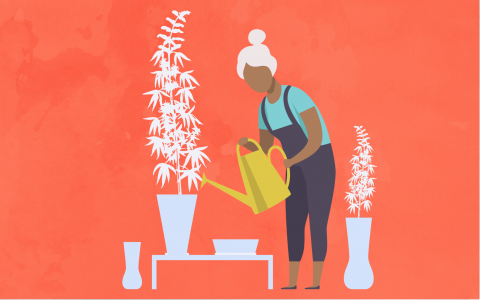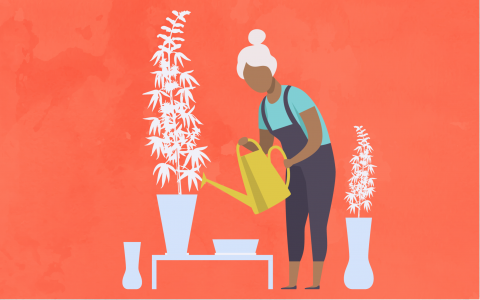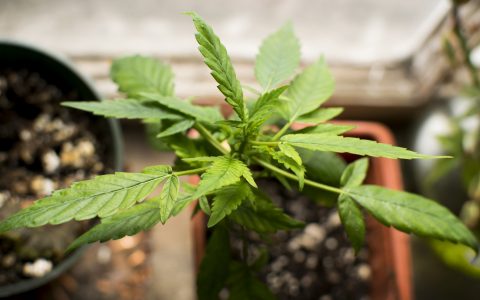In the world of legal cannabis, Washington is unique: It’s the only adult-use cannabis state that entirely prohibits adults from growing cannabis at home.
A pair of bills introduced Wednesday in the state Legislature would change that, allowing people 21 and over to grow up to six plants at home for personal use. But whether the bill can pass remains an open question. Past efforts to legalize home cultivation have withered at the Capitol.
This year’s effort could be different. Both bills boast bipartisan sponsors, and supporters say they’re optimistic.
“I am absolutely convinced that if we get this to the floor, we can get it passed,” John Kingsbury, a longtime medical cannabis and homegrow advocate, told The Stranger.
Kingsbury helped lobby the Legislature to get the measure introduced and described lawmakers as cautiously supportive of the change. “I have gone to dozens and dozens of legislators asking for their support,” he said, “and the thing I kept hearing was, ‘I don’t want to sign my name on it, but I will vote on it if it comes to the floor.”
The newly introduced bills, filed late last week, do away with many of the strict limitations suggested by cannabis regulators at the state Liquor and Cannabis Board (LCB), which was tasked to study the issue the last time it came up, in 2017. The LCB’s recommendations included mandatory government-issued permits, a four-plant limit, and—in the case of one proposal—even a system to track each individual cannabis plant across the state.
Under the latest proposal before the Legislature, adults would be allowed to grow up to six plants, and neither permits nor tracking would be required.
Skeptics of homegrow worry the allowance could expand Washington’s illicit cannabis market, which continues to function in much of the state, especially in areas where access to legal cannabis is limited. In its 2017 report, the LCB warned that “home grows have operated as a cover for the illicit market and diversion and could undermine the regulated system.”
“Any approach that allows for private citizens to grow marijuana at home will carry considerable resource impacts and costs for regulation and enforcement,” the agency said.
But supporters say those blanket statements ignore important distinctions in state homegrow laws, such as caps on the number of plants per household. In an interview with KUOW before the new bills were introduced, state Rep. David Sawyer (D-Tacoma) noted that lawmakers are drawing on “what we’ve learned from other states.”
“We learned what not to do,” Sawyer said. “Colorado had a limit of 99 plants, and law enforcement had no way of taking down illegal operations.” (Colorado has since reduced its homegrow limit to six plants.)
A well-functioning homegrow law could actually help reduce illicit sales, he suggested. “If no other option exists, no retail store, a home grow is a way for at least some folks to provide their own marijuana without having to pay off a criminal element to give it to them.”
Sponsors of Senate version of the bill, SB 5155, include Sens. Maureen Walsh (R-Pasco), Bob Hasegawa (D-Seattle), Sam Hunt (D-Olympia), and Rebecca Saldaña (D-Seattle).
The House bill, HB 1131, is sponsored by Reps. Brian Blake (D-Longview), Drew MacEwen (R-Union), Laurie Dolan (D-Olympia), Jim Walsh (R-Longview), and Shelley Kloba (D-Bothell), Cindy Ryu (D-Shoreline), Sherry Appleton (D-Poulsbo), Roger Goodman (D-Kirkland), Monica Jurado Stonier (D-Vancouver), and Jesse Young (R-Gig Harbor).






